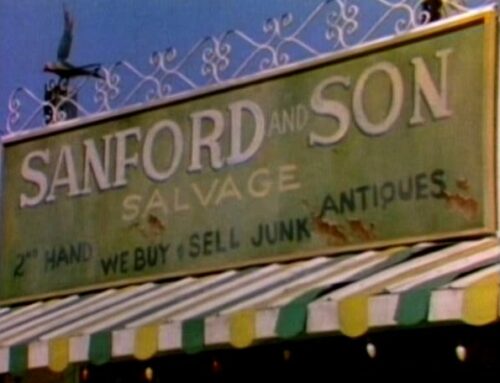There’s a big difference between financing a normal mass market car and financing a high-end car, like a performance, exotic, or collectible car.
It’s not just the sheer dollar amounts involved – though that’s obviously important.
The real difference is that mass market cars depreciate.
But in the specialty car market, some well-cared for cars can be expected to appreciate over time.
Their value goes up, rather than down.
That means that neither the borrower or the lender need be very worried about negative equity, or being “upside down” on the car loan. So unlike a mass market car, the well-cared-for speciality car will usually be sufficient collateral to secure the loan at all times during the loan term.
So as long as you don’t drive it beyond the agreed-upon mileage limits, maintain, and store the car responsibly, and you don’t get in a wreck, you won’t be upside down on the specialty car for long, if at all.
In theory, lenders understand the specialty car market a ton of flexibility that lenders in the mass market consumer car market don’t just don’t have.
Down payments can be very low. The car is sufficient collateral for the loan with a very low down payment.
Loan terms can be very long. Because the car is expected to rise in value over time, rather than fall, the lender isn’t in a race against the amortization table!
Car refinances should be a no brainer. If your income can cover the loan payment, in theory, you could go back and tap the equity in your car over and over again for tax-free cash, like you might using a home equity loan.
And indeed, we do see specialty car lenders doing precisely these things!
So rather than cap car loans at 60 or 72 months, there are several car finance outfits who will finance certain high-end autos and “supercars” for much lower payments than standard car companies, and over much longer periods of time.
Examples include:
- Collector Car Lending – loans up to 144 months
- Woodside Credit – loans up to 180 months
- JJ Best Banc
Most mainstream consumer finance websites and lots of financial advisors serving the middle class frown on longer car loans.
There are good reasons for this: Most people are putting themselves at risk of severe financial hardship if they owe more than the car is worth. But because collector and specialty cars are expected to go up in value, not down, negative equity isn’t a concern. The lender knows that if you run into trouble, you can sell the car quickly and pay off the loan.
Longer car loans mean you pay much more in interest during the life of the loan. For mass market car loans, this is a serious concern. Most people don’t own businesses and don’t have tons of investments generating cash or increasing in value.
If you own a steadily profitable business, or you’re great at buying investment properties, you’d be nuts to strip them of profitably invested cash or put off investing in them just so you can have a smaller car loan, or to pay cash outright for a car.
If you think that car’s going to increase in value (e.g., it’s an asset, not a liability), then it makes sense to own it as soon as you can. And let someone else’s cash buy it for you.
As long as your investments plus the car are generating value faster than your car loan interest (and other costs of ownership) is eating it, mathematically you should take out the longest car loan you can find. And refinance it every so often.
It also doesn’t make sense to sell appreciated stock or other investments to pay cash for a supercar if that sale is going to force you to eat a 20% capital gains tax.
And that’s just at the federal level. Many states also slap an additional tax on your capital gains. California, for example, taxes capital gains as ordinary income, with rates up to 13%. (That’s on top of the ridiculous sales tax rate they charge on the car purchase!) Massachusetts charges some types of capital gains at 12%.
Oregon charges a capital gains tax up to 9.9%.
New Jersey charges up to 10.75%.
It’s often much better to take on a car loan at a reasonable interest rate than it is to realize a bunch of capital gains by selling investments to raise cash to purchase your supercar.
And then, on top of that, you also probably pay a big opportunity cost when you take cash out of investments and tie them up in the car.
Watch for pre-payment penalties
Industry sources tell us that most people who finance a supercar don’t carry the loan for the full term. If you have capital getting freed up in a year or two, for example, you may want to pay off some or all of the outstanding loan amount. Also, it’s very common for supercar owners to sell or buy cars opportunistically. If you get a great offer for your Lamborghini, you don’t want to get stuck with a pre-payment penalty after selling it, and you don’t want to pay interest on a car you no longer own!
Also, lots of people sell because they found another great dream car and want to drive that one for a while! And so they sell their existing car!
If this is likely to be you, take a good look at any pre-payment penalties on the car loan.
Most luxury/supercar speciality lenders understand this, and structure their loans accordingly.
Jumbo Car Loan Credit Criteria
Obviously, supercars aren’t for everybody. And neither are car loans of this size. Lenders don’t give them out to just anyone!
While there’s no hard-and-fast criteria (every case is different) here’s broadly what you can expect:
Lenders want a strong credit score. These aren’t usually asset-based loans. Lots of you readers who work in real estate are familiar with ‘hard money’ lending, where your personal credit isn’t a factor because the property is the sole security. But car lenders still typically underwrite at least partially on your own personal credit.
20% down payment. Again, this isn’t a universal rule. But lenders will be relying on you to maintain and store your car, and they’ll want to know that you have some “skin in the game.” So expect to put about 20% down or more, in most cases.
Not your first rodeo. Lenders don’t want to extend a big loan on someone who’s never had a big car loan before. It’s common for them to cap loans at around 150% of a previous car loan. So if your last car loan was for $200,000, some lenders might cap your loan at around $300,000, unless you have some additional collateral.
Adequate income. Lenders will look at W2s, 1099s, bank statements, or other documents to assure themselves that you’ve got enough income coming in to pay your car loan.
Adequate debt-to-income ratio. Lenders usually look for a DTI of 50% or less. That is, your current debt service obligations (after you take out the car loan) should consume not more than 50% of your income.
Proof of insurance. You’ll need to maintain comprehensive and collision coverage on the car from an approved carrier in an amount that is satisfactory to the lender. You’ll have to name the lender as an interested party on the car insurance. That means that if your insurance lapses, the insurance company will notify the lender.
You should build the cost of insuring your supercar into your budget. The lender will probably be thinking about it, especially if your application is borderline!
These aren’t strict criteria: If you fall short of the ideal standard in one area, you can still get approved with a strong showing in another area. For example, if your credit score is wobbly, you may still get approved with a bigger down payment. If your verifiable income is a little low, you can still potentially get approved with additional collateral, or a longer loan term.
Note: You cannot pledge retirement accounts (IRAs, 401(k)s, etc.) as collateral for a personal or business loan. That would be a prohibited transaction and cause the IRS to disallow the tax advantages of your your whole account, resulting in massive taxes and penalties.
Shop Around for Supercar Financing.
Don’t just take the car loan they push on you at a car dealership. Dealers select these lenders based on how big a commission they’ll pay to the dealer finance desk, and how soft their credit requirements are so they can sell to desperate buyers. Just like car insurance, you can get much better, more competitive financing offers by shopping around! Don’t let the dealer sell you on the convenience of financing right at the dealership. That could be a very, very expensive mistake!
(Don’t buy “gap” insurance from the dealer, either.)
Leasing
In many cases, it may make sense to lease your dream car, rather than use the financing to purchase it outright. This might make better sense if you like swapping out cars every couple of years, and you don’t want to tie up capital.
Leasing in the supercar market is very different than leasing in the mass consumer market. Click here for our best leasing tips for supercar buyers!
Alternatives to Supercar Loans
There are lots of advantages to supercar loans over paying that much cash for a car. But your options aren’t limited to car financing companies. Even ones that specialize in car financing.
Other options include:
Borrowing against real estate. You can raise cash tax free by refinancing a property. Be mindful of maintaining separation between personal and business assets, so you don’t jeopardize your limited liability protections.
Margin loans. You can borrow money from your stock broker, often at very competitive rates. Your collateral is the money in your account. However, if the value of your assets falls, you may have to quickly put up additional cash in case of a margin call.
Life insurance cash value. You can borrow money against the cash value of a permanent life insurance policy. If your life insurance carrier doesn’t practice direct recognition, you’ll still get the benefit of any dividends or appreciation in your policy, even on the amount you borrowed. In other words, you didn’t withdraw money from your permanent life insurance policy. You borrowed against it!
Participating cash value life insurance from a mutual (dividend-paying) life insurance carrier that does not practice direct recognition can be a great way to finance cars or any other large purchases. The idea is that instead of paying a lender for the loan, you use your accumulated cash value in your life insurance policy for tax-free money (as long as the policy doesn’t lapse!) and pay the interest to yourself instead.
Each of these financing options have the benefit of preserving your own cash, prevent you having drain your own investments of cash or delaying profitable investment, and allowing you to avoid having t0 generate a bunch of capital gains tax liability by selling off highly-appreciated assets to raise cash to buy the car.
They also have the benefit of competitive interest rates, and few or no restrictions on how you use or store your supercar.
But remember, the lenders who specialize in this market aren’t dumb: The restrictions are there to help preserve and protect the value of the car. So if a lender imposes a mileage cap or requires adequate storage or security for your supercar, it’s probably something you should be doing anyway!
Did you finance a supercar in the $300,000+ range? What was the car, the terms of the loan, and how did you make the decision to finance? What did you learn in the process? Let us know in the comments!
See you on the road!
Steve “Mr. Insurance” Ludwig
CEO, Select Insurance Group






